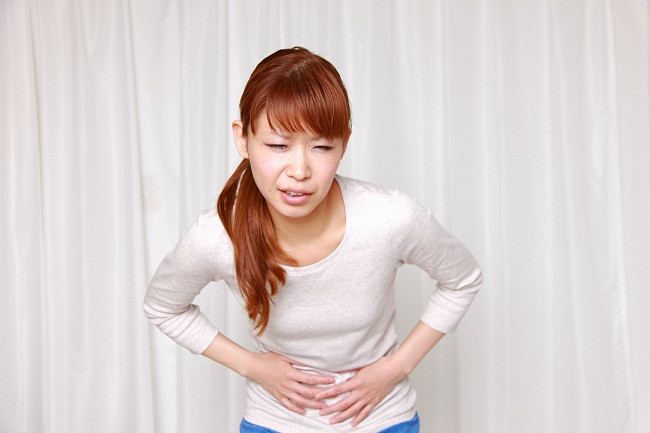6 Causes of Pain in the Heart and Tips for Overcoming It
Have you ever felt pain in the middle of the upper abdomen accompanied by nausea or flatulence? If ever, you may experience heartburn. At least, there are six common causes that can trigger pain or pain in the pit of the stomach. Consider the following review.
In medical science, the heartburn area is called the epigastrium. Location of solar plexus is below the sternum and above the navel, or upper abdomen. This pain or pain can spread from one part to another. Heartburn can be mild, but it can also be a sign of serious health problems that need to be treated.
Six Causes of Pain in the Heart and Tips to Overcome It
Causes of Heartburn
Here are six causes of heartburn:
Gastric ulcer
Gastric ulcers are open sores on the lining of the stomach wall or part of the small intestine. This occurs when acidic substances in the digestive tract damage the surface of the stomach or small intestine. These acids can make open wounds that are very painful or may make them bleed.
This condition can be caused by bacterial infections and the use of drugs (aspirin, ibuprofen, naproxen, ketoprofen, bisphosphonates, and potassium supplements).
You can feel pain when you suffer from stomach ulcers. In addition to heartburn, pain can be felt from the navel to the chest area. You will feel very severe pain on an empty stomach and at night. Pain can disappear and reappear again on a matter of days or weeks.
Although rare, stomach ulcers can also be characterized by vomiting of blood, blood in the stool, nausea, reduced appetite, and weight loss.
Irritable Bowel Syndrome
In addition to pain in the pit of the stomach, the condition that attacks the large intestine also causes cramps, flatulence, gas discharge, and changes in the frequency of bowel movements.
This condition may occur because the intestinal wall is covered by a layer of muscle, moves stronger and longer than usual when carrying food from the stomach through the intestinal tract to the anus.
The exact cause of this condition is not yet certain, but there are some things that are thought to trigger irritable bowel syndrome. Those at high risk for this syndrome include women, people aged 45 years and under, have family members who have irritable bowel syndrome, and have mental health disorders, such as depression and anxiety disorders.
Pancreatitis
The pancreas is an organ that produces enzymes that help digestion and hormones in regulating the body's efforts to process sugar. Pancreatitis occurs when the pancreas is inflamed.
Acute pain can be felt up to the back which is usually accompanied by vomiting. Other symptoms are discoloration of the skin around the navel or waist, stiff stomach, and severe abdominal pain after eating. Chronic pancreatitis can cause weight loss and stools that are unusual, greasy.
Gallbladder disease
The gallbladder is a small bag that is under the liver. This bag stores fluids that help the body digest fat, which is called bile.
If the gallbladder has a problem, you will experience constant abdominal pain that can be accompanied by fever, nausea, vomiting, trembling body, discolored stools, and chest pain. Some bile diseases that need to be aware of are inflammation and bile infections, gallstones, and bile cancer.
Preeclampsia
This condition is one of the problems of pregnancy that is characterized by high blood pressure in pregnant women, there is protein in the urine, and swelling of the legs and arms. Preeclampsia can damage organs in the body, generally kidneys. Pain in the pit of the stomach will feel very significant if the condition is severe. Usually it will be accompanied by vomiting.
Gastric cancer
This disease occurs when malignant cancer cells are formed in the stomach. Those at high risk for gastric cancer are men, smokers, 55 years and above, a history of H. pylori bacterial infection in the stomach, often eat foods with high salt content, and have family members with a history of this disease. In addition to heartburn, stomach cancer will also make sufferers unable to eat large portions, vomiting and weight loss.
Tips for Overcoming Pain in the Heartburn
If it is not severe and only occurs one to two times, the pain in the pit of the stomach can be overcome easily and can be done at home, such as:
Taking antacid drugs may help neutralize stomach acid, while reducing pain. You can take it 60 minutes after eating and before sleeping as much as 1-2 tablespoons or one tablet. It is advisable to take liquid antacid drugs rather than tablets.
When experiencing pain in the pit of the stomach, try consuming light foods, as well as healthy foods such as fruits and vegetables. Avoid consuming alcoholic beverages, caffeine, and foods that can irritate your stomach.
Avoid the habit of taking drugs such as aspirin, nonsteroidal anti-inflammatory drugs (NSAIDs), and herbal remedies or supplements before consulting a doctor.
Set your diet to be more organized. Get used to eating small portions but more often to prevent an increase in excess stomach acid.
Contact your doctor, if for two days your heartburn has not improved or even worsened, such as accompanied by swelling of the stomach, fever, vomiting, blood in the stool, vomiting, feeling weak, fainting, or difficulty breathing.
SOURCE:
https://www.alodokter.com/enam-penyebab-sakit-di-ulu-hati-dan-tips-mengatasi


0 Response to "6 Causes of Pain in the Heart and Tips for Overcoming It"
Post a Comment